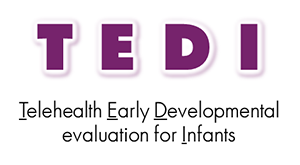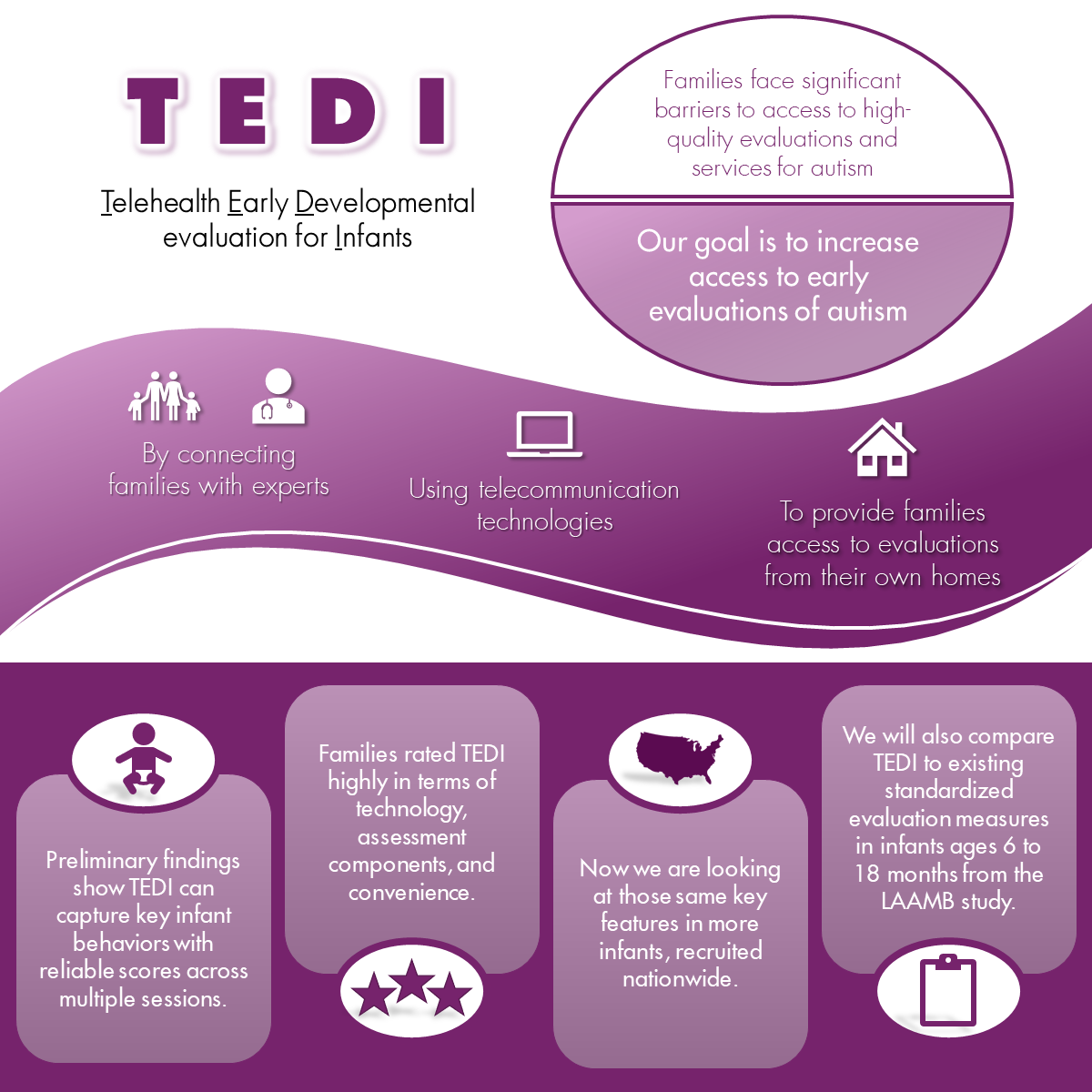
DEVELOPING DIGITAL TELEHEALTH ASSESSMENTS FOR AUTISM: INCREASING ACCESS TO EARLY IDENTIFICATION
07/07/2022

|
Over the last few decades, we have learned a great deal about the early development of autism . For example, we know that for most children on the spectrum, the signs of autism emerge over the first few years of life. Despite advances in early identification, there remain significant barriers to families’ access to high-quality evaluations and services. These include long waitlists for evaluations, lack of specialized expertise in community settings and provider hesitancy to refer young infants for further evaluation. Families are often told to ‘wait and see’. To help increase access to early evaluations, we have developed a telehealth-based early developmental evaluation for infants, the TEDI. Using video telecommunication technologies such as Zoom, families are able to connect with experts and access autism evaluations from their own homes. Importantly, developing a telehealth-based assessment for autism will increase access for families in rural and low-resourced areas.
In one of our research studies, we are examining whether this telehealth-based approach is feasible for clinicians and researchers in terms of our ability to capture key infant behaviors. We are also gathering feedback from families about whether the TEDI meets their needs, as well as any ideas for improvement. Preliminary findings suggest that examiner-scored behavioral ratings from video sessions were reliable and that infants’ behavior was stable across multiple observation sessions. Sessions were completed with minimal technological problems, and families rated the TEDI as highly acceptable in terms of the technology used, assessment components included, and the convenience of telehealth-delivered sessions. We are now examining these same features in a larger sample of infants, recruited nationwide, whose parents have concerns about their social communication development. Recruitment for this larger study is ongoing through September 2021. More information about enrolling can be found here.
In a second recently awarded grant from the Eunice Kennedy Shriver National Institute of Child Health and Human Development, we will be examining another aspect of the TEDI. We need to see how the TEDI compares to existing standardized and validated measures collected in a traditional laboratory setting. This next step is crucial for demonstrating that this telehealth-based approach can be reliably used to evaluate infants’ behavior. We will be asking families who are receiving existing gold-standard in-person assessments through another project at the MIND Institute, the LAAMB study, to participate in an additional telehealth session using the TEDI from home. This will allow us to compare infants’ behavior across the two study settings. We’ll do this at three ages: 6 or 9 months, 12 months, and 18 months. Other MIND Institute faculty involved in this project include Meghan Miller, who directs the LAAMB study, and Gregory Young and Sarah Dufek. We are so grateful to all the families who have participated so far!
